EP 858 A Former U.S. Ambassador to the Vatican on the Upcoming Conclave to Replace Pope Francis
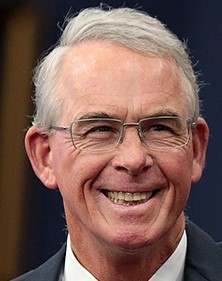 When we see the white smoke billowing from the Sistine Chapel, will it signify the more open and humanistic Papacy established by Pope Francis, the first South American Pope, or will it be a return to the more doctrinaire church led by his predecessor, Benedict XVI. Time will tell. To share his insights about it with us is Francis Rooney, the U.S. Ambassador to the Holy See from 2005-2008. He gives us his impressions about the changes in the Church under Pope Francis and assesses some of the leading figures who are mentioned as possible successors. We reflect on Pope Francis’s legacy and how the Church has weathered the storms of the recent past. We also ask Ambassador Rooney to discuss the Ukraine War and matters pertaining to the Trump Administration. He was a Congressman from Florida for four years, from 2017 to 2021. He is now affiliated with the Wilson Center.
When we see the white smoke billowing from the Sistine Chapel, will it signify the more open and humanistic Papacy established by Pope Francis, the first South American Pope, or will it be a return to the more doctrinaire church led by his predecessor, Benedict XVI. Time will tell. To share his insights about it with us is Francis Rooney, the U.S. Ambassador to the Holy See from 2005-2008. He gives us his impressions about the changes in the Church under Pope Francis and assesses some of the leading figures who are mentioned as possible successors. We reflect on Pope Francis’s legacy and how the Church has weathered the storms of the recent past. We also ask Ambassador Rooney to discuss the Ukraine War and matters pertaining to the Trump Administration. He was a Congressman from Florida for four years, from 2017 to 2021. He is now affiliated with the Wilson Center.
Podcast: Play in new window | Download
 Perhaps you were following the social media phenomenon in 2023 of Flaco, dubbed ‘the world’s most famous bird’ from the night when vandals at the Central Park Zoo cut a hole in his cage until his death a year later in a courtyard on the Upper West Side. The year-long odyssey captured the imagination of New Yorkers and people around the globe as he learned to survive in this urban landscape by eating rats, squirrels and birds. This occurred despite the fact that this gorgeous Eurasian eagle-owl had spent his entire life previous to this in a cage. In the deft hands of nature writer David Gessner, “The Book of Flaco” The World’s Most Famous Bird” is a cautionary tale of the hardscapes we have built and the way nature’s other species have had to navigate them. In this age of the Anthropocene all of man’s decisions are having great impact on flora and fauna worldwide. We open up our conversation’s aperture to describe its impacts in an age of rapid global warming.
Perhaps you were following the social media phenomenon in 2023 of Flaco, dubbed ‘the world’s most famous bird’ from the night when vandals at the Central Park Zoo cut a hole in his cage until his death a year later in a courtyard on the Upper West Side. The year-long odyssey captured the imagination of New Yorkers and people around the globe as he learned to survive in this urban landscape by eating rats, squirrels and birds. This occurred despite the fact that this gorgeous Eurasian eagle-owl had spent his entire life previous to this in a cage. In the deft hands of nature writer David Gessner, “The Book of Flaco” The World’s Most Famous Bird” is a cautionary tale of the hardscapes we have built and the way nature’s other species have had to navigate them. In this age of the Anthropocene all of man’s decisions are having great impact on flora and fauna worldwide. We open up our conversation’s aperture to describe its impacts in an age of rapid global warming.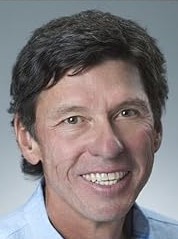 As a society we must ask ourselves what is the bottom- line consideration when it comes to health care? Is it the numbers on a spreadsheet, the self-aggrandizement of the institution’s owners or the well- being of the patient? The response should be obvious. Yet, the insidious model of private equity, now the owner of 457 hospitals in America and countless medical practices, including every specialty, and even your pet’s good care, is turning the incentive structure on its head, focused only on self -enrichment at the expense of quality care. Such a case is going on as I write this in my own community and the hospital at which I was born. It has been gutted financially by private equity plunderers and is on the verge of collapse. James Kelly RN, our guest today, and the author of “Margin Over Mission: When Private Equity Owns Your Hospital” had seen enough at his own hospital in Albuquerque, taken over by private equity. He schooled himself on the rapacious practices of this form of ownership which borrows heavily to purchase these facilities and lays the debt obligation on the care centers themselves, thus making patient care secondary to financial chicanery. Regulators of any type are very late to the effort to halt these practices, often coming in only when a vital institution in the community is on the verge of collapse. For a better understanding, please listen to this podcast.
As a society we must ask ourselves what is the bottom- line consideration when it comes to health care? Is it the numbers on a spreadsheet, the self-aggrandizement of the institution’s owners or the well- being of the patient? The response should be obvious. Yet, the insidious model of private equity, now the owner of 457 hospitals in America and countless medical practices, including every specialty, and even your pet’s good care, is turning the incentive structure on its head, focused only on self -enrichment at the expense of quality care. Such a case is going on as I write this in my own community and the hospital at which I was born. It has been gutted financially by private equity plunderers and is on the verge of collapse. James Kelly RN, our guest today, and the author of “Margin Over Mission: When Private Equity Owns Your Hospital” had seen enough at his own hospital in Albuquerque, taken over by private equity. He schooled himself on the rapacious practices of this form of ownership which borrows heavily to purchase these facilities and lays the debt obligation on the care centers themselves, thus making patient care secondary to financial chicanery. Regulators of any type are very late to the effort to halt these practices, often coming in only when a vital institution in the community is on the verge of collapse. For a better understanding, please listen to this podcast.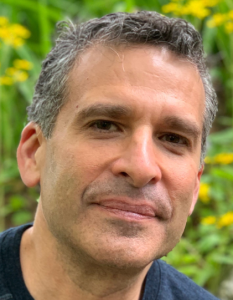 The metaphor of a lighthouse–steady, reliable and guiding without being overbearing– is the framework to provide a balanced alternative to extreme parenting trends. If applied consistently it equips families to raise emotionally healthy children who thrive academically, build resilience and maintain lifelong connections with their parents. A leading proponent of this approach, Dr. Kenneth Ginsburg describes the approach in his new book “Lighthouse Parenting: Raising Your Child with Loving Guidance for a Lifelong Bond.” And while there are many faddish trends in the field of parenting, like helicopter parents or tiger moms, the lighthouse framework is durable and sensible, almost in a sense the Goldilocks approach–getting it just right as you enforce rules but given children room to develop and make mistakes. All of this takes place against a backdrop of unique hurdles in parenting today: both parents working, the ever-present screens, the positive and negative impacts of social media and fears around school violence. If you’re looking for a practical and compassionate approach to navigating this uncertain moment, then please listen to this podcast.
The metaphor of a lighthouse–steady, reliable and guiding without being overbearing– is the framework to provide a balanced alternative to extreme parenting trends. If applied consistently it equips families to raise emotionally healthy children who thrive academically, build resilience and maintain lifelong connections with their parents. A leading proponent of this approach, Dr. Kenneth Ginsburg describes the approach in his new book “Lighthouse Parenting: Raising Your Child with Loving Guidance for a Lifelong Bond.” And while there are many faddish trends in the field of parenting, like helicopter parents or tiger moms, the lighthouse framework is durable and sensible, almost in a sense the Goldilocks approach–getting it just right as you enforce rules but given children room to develop and make mistakes. All of this takes place against a backdrop of unique hurdles in parenting today: both parents working, the ever-present screens, the positive and negative impacts of social media and fears around school violence. If you’re looking for a practical and compassionate approach to navigating this uncertain moment, then please listen to this podcast.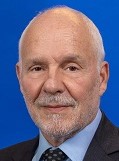 If you read the latest edition of the National Assessment of Educational Progress, also known as “The Nation’s Report Card”, things are not going well in our nation’s public schools. Clearly, the long tail effects of the COVID pandemic are at play here. One respected educational researcher, Dan Goldhaber, did not want to sugarcoat the findings about reading and math proficiency among America’s 4th and 8th graders. He said “I don’t think this is the canary in the coal mine. This is a flock of dead birds in the coal mine. The results saw something of a good bump in the wake of No Child Left Behind in the early 00’s but plateaued before the pandemic and have been downward ever since. To discuss what’s happening here and provide some solutions is Mark Schneider a non-resident senior fellow at the American Enterprise Institute(aei.org). His work focuses on educational research. He was the Commissioner of the National Center for Education Statistics.
If you read the latest edition of the National Assessment of Educational Progress, also known as “The Nation’s Report Card”, things are not going well in our nation’s public schools. Clearly, the long tail effects of the COVID pandemic are at play here. One respected educational researcher, Dan Goldhaber, did not want to sugarcoat the findings about reading and math proficiency among America’s 4th and 8th graders. He said “I don’t think this is the canary in the coal mine. This is a flock of dead birds in the coal mine. The results saw something of a good bump in the wake of No Child Left Behind in the early 00’s but plateaued before the pandemic and have been downward ever since. To discuss what’s happening here and provide some solutions is Mark Schneider a non-resident senior fellow at the American Enterprise Institute(aei.org). His work focuses on educational research. He was the Commissioner of the National Center for Education Statistics.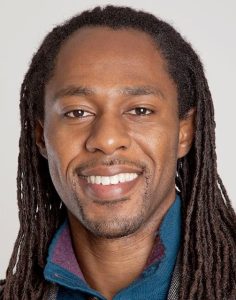 While there are many in America who believe that racism is a thing of the past and no longer an issue, those beliefs are not grounded in science with empirical proof to back them up. You might say is this provable objectively? Keon West, PhD., a social psychologist at the University of London, sets out to prove, through science, that racism still exists. It’s the basis of his new book, ‘The Science of Racism: Everything You Need to Know but Probably Don’t-Yet.” That is until you read this book and get exposed to study after study, whether it be in the fields of employment, health care or criminal justice, as examples, how the concept of racism persisting is verifiable and unassailable. In many ways, it’s baked into our own make-ups, with unconscious bias, and locked into the way institutions operate, which is systemic racism. He clearly explains the difference and how a society can still discriminate even if the individuals within it have thrown off the bigotry many relegate to the past. He also offers ways to address racism in meaningful ways in order to reflect the progress we hope will come about in our multi-cultural society. It is an enlightening and eye- opening discussion with a dispassionate and distinguished scholar and scientist.
While there are many in America who believe that racism is a thing of the past and no longer an issue, those beliefs are not grounded in science with empirical proof to back them up. You might say is this provable objectively? Keon West, PhD., a social psychologist at the University of London, sets out to prove, through science, that racism still exists. It’s the basis of his new book, ‘The Science of Racism: Everything You Need to Know but Probably Don’t-Yet.” That is until you read this book and get exposed to study after study, whether it be in the fields of employment, health care or criminal justice, as examples, how the concept of racism persisting is verifiable and unassailable. In many ways, it’s baked into our own make-ups, with unconscious bias, and locked into the way institutions operate, which is systemic racism. He clearly explains the difference and how a society can still discriminate even if the individuals within it have thrown off the bigotry many relegate to the past. He also offers ways to address racism in meaningful ways in order to reflect the progress we hope will come about in our multi-cultural society. It is an enlightening and eye- opening discussion with a dispassionate and distinguished scholar and scientist.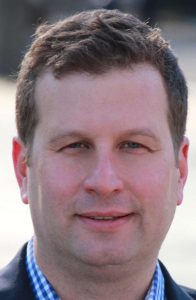 Imagine an American president who imprisoned critics, spread a culture of white supremacy, and tried to upend the rule of law so that he could commit crimes with impunity. You may think this narrative speaks only to the present, but in fact history shows that American presidents have often pushed the boundaries established for them by the Constitution. In “The Presidents and the People: Five Leaders Who Threatened Democracy and the Citizens Who Fought to Defend It”, constitutional law and political science professor Corey Brettschneider provides a compelling account of assaults on democracy by five past presidents: John Adams, James Buchanan, Andrew Johnson, Woodrow Wilson, and Richard Nixon. So, he tells us do not look to the courts or Congress to save the constitutional order. If our history is a guide, we, the people, need to do it. Are we up to the task? We discuss today in this engaging discussion.
Imagine an American president who imprisoned critics, spread a culture of white supremacy, and tried to upend the rule of law so that he could commit crimes with impunity. You may think this narrative speaks only to the present, but in fact history shows that American presidents have often pushed the boundaries established for them by the Constitution. In “The Presidents and the People: Five Leaders Who Threatened Democracy and the Citizens Who Fought to Defend It”, constitutional law and political science professor Corey Brettschneider provides a compelling account of assaults on democracy by five past presidents: John Adams, James Buchanan, Andrew Johnson, Woodrow Wilson, and Richard Nixon. So, he tells us do not look to the courts or Congress to save the constitutional order. If our history is a guide, we, the people, need to do it. Are we up to the task? We discuss today in this engaging discussion.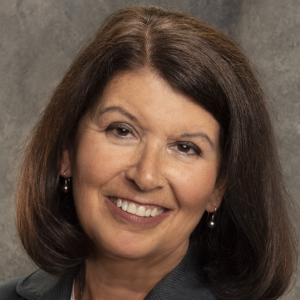 Social Security and its future have been in the news recently as the DOGE guys have been looking at its innards. Yet, it’s not called the third rail of American politics for nothing. Over 70 million Americans rely on it for much, if not all, of their retirement income. Like Medicare, Social Security can be complicated to navigate when the time comes for you to enroll. The toughest question is when to begin taking it–age 62, 67 or 70 in most cases–and the long- term implications of that decision. In this conversation with Martha Shedden, certified as a Chartered Retirement Planning Counselor and a Registered Social Security Analyst we discuss many aspects of Social Security income planning as well as the macro issues surrounding its financial viability, efforts to privatize it and questions surrounding the taxing of these benefits on the federal, as well as state level. There’s much to consider and this podcast provides a good first step for you. More information is available at rssa.com and narssa.org.
Social Security and its future have been in the news recently as the DOGE guys have been looking at its innards. Yet, it’s not called the third rail of American politics for nothing. Over 70 million Americans rely on it for much, if not all, of their retirement income. Like Medicare, Social Security can be complicated to navigate when the time comes for you to enroll. The toughest question is when to begin taking it–age 62, 67 or 70 in most cases–and the long- term implications of that decision. In this conversation with Martha Shedden, certified as a Chartered Retirement Planning Counselor and a Registered Social Security Analyst we discuss many aspects of Social Security income planning as well as the macro issues surrounding its financial viability, efforts to privatize it and questions surrounding the taxing of these benefits on the federal, as well as state level. There’s much to consider and this podcast provides a good first step for you. More information is available at rssa.com and narssa.org.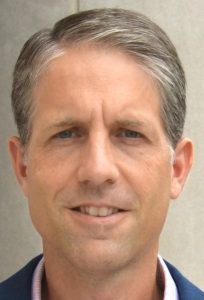 The pen is mightier than the sword and the ability to read opens up an entirely new world to someone who lacked that ability before. That’s why the issue of Black literacy in the South has such an important history. For Black citizens, it was a weapon of empowerment and rebellion, while for whites, it was the only tool that could destabilize their grip on power. The ghosts of this fight live on today. Derek W. Black lays out the long and complicated history of the subject in his book, “Dangerous Learning: The South’s Long War on Black Literacy.” He details the lengths to which slave owners and governments went to limit Black access to education. In our conversation we bring the issue into a modern context over how American history is taught in schools, the role of the federal Department of Education in providing access to quality education to all children and the seminal Brown v. Board of Education and its impacts to this day and into the future.
The pen is mightier than the sword and the ability to read opens up an entirely new world to someone who lacked that ability before. That’s why the issue of Black literacy in the South has such an important history. For Black citizens, it was a weapon of empowerment and rebellion, while for whites, it was the only tool that could destabilize their grip on power. The ghosts of this fight live on today. Derek W. Black lays out the long and complicated history of the subject in his book, “Dangerous Learning: The South’s Long War on Black Literacy.” He details the lengths to which slave owners and governments went to limit Black access to education. In our conversation we bring the issue into a modern context over how American history is taught in schools, the role of the federal Department of Education in providing access to quality education to all children and the seminal Brown v. Board of Education and its impacts to this day and into the future.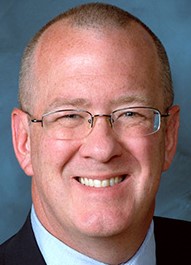 Years of low unemployment, record stock market gains and a slowing of the rate of inflation under President Jow Biden have given way to an economic muddle in the present under Donald Trump. Are we putting tariffs on allies or are we not? How long can this uncertainty go on without roiling markets and causing companies to hold back on investments? Will we try to extend the tax cuts and lead to an ever- increasing federal debt and will we really be able to bring manufacturing back to the U.S. with these policies–or should that even be our goal? And is much of what economists have seen to date leading to a period of stagflation, like we saw in the late 1970’s? Such are the questions that need to be sorted out in the coming months and years under this administration. Our guest, Michael Hicks, who self identifies as a conservative economist, is the director of the Center for Business and Economic Research and the George and Frances Ball distinguished professor of Economics at Ball State University. He posits that we would know the Administration has serious policy objectives if we saw a plan that includes broad tax increases, targeted spending cuts and a major reworking of entitlement programs. Has anyone seen that plan? Not to date.
Years of low unemployment, record stock market gains and a slowing of the rate of inflation under President Jow Biden have given way to an economic muddle in the present under Donald Trump. Are we putting tariffs on allies or are we not? How long can this uncertainty go on without roiling markets and causing companies to hold back on investments? Will we try to extend the tax cuts and lead to an ever- increasing federal debt and will we really be able to bring manufacturing back to the U.S. with these policies–or should that even be our goal? And is much of what economists have seen to date leading to a period of stagflation, like we saw in the late 1970’s? Such are the questions that need to be sorted out in the coming months and years under this administration. Our guest, Michael Hicks, who self identifies as a conservative economist, is the director of the Center for Business and Economic Research and the George and Frances Ball distinguished professor of Economics at Ball State University. He posits that we would know the Administration has serious policy objectives if we saw a plan that includes broad tax increases, targeted spending cuts and a major reworking of entitlement programs. Has anyone seen that plan? Not to date.